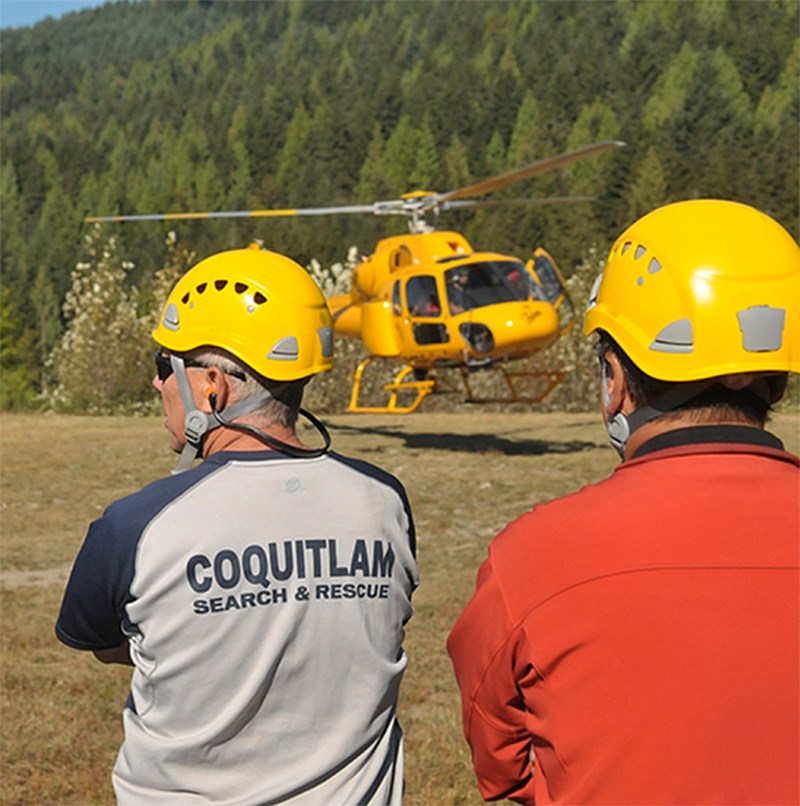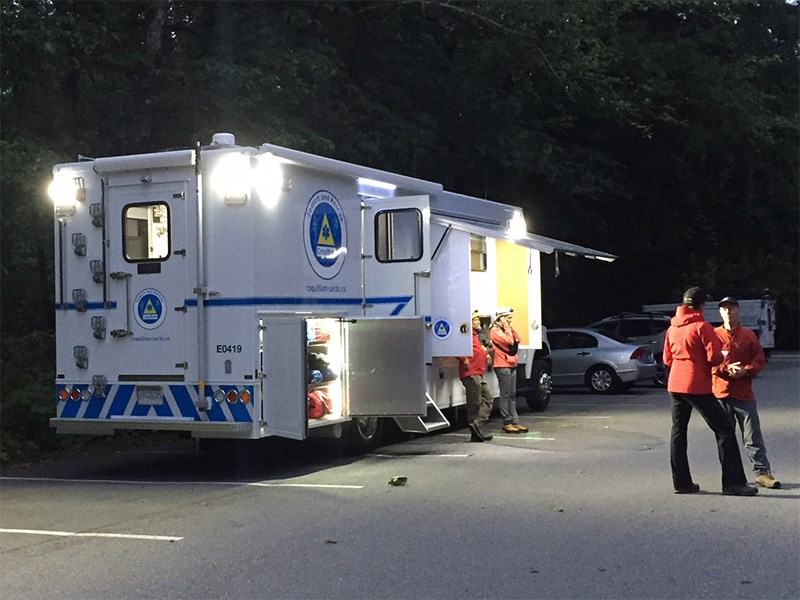Dealing with the emotional toll of a difficult search, like last week’s retrieval of a 16-year-old who died while hiking and his surviving friend, is part of the job for Coquitlam Search and Rescue.
But they don’t have to deal with the trauma alone.
Coquitlam SAR volunteers who participated in last week’s rescue will already have debriefed and will be alert to any emotional trauma from the experience, thanks to education and support from a Critical Incident Stress Management (CISM) team provided by the BC Search and Rescue Association.
Coquitlam SAR search manager Ray Nordstrand said searchers have already discussed what happened last Wednesday and follow up calls will be made to ensure participants are doing OK.
“Definitely the offer was there, in certain cases we will bring them in,” said Nordstrand, who said it’s important for each participant in a critical incident search to talk about what they saw, heard and experienced and to hear what others experienced as well.
“Often times, by sharing with others that are involved, it helps you to see more clearly and help you get off that repetitive track, because that’s what critical incident stress can be like: You play it over and over again because your brain is having a hard time understanding it.”
The victim was a School District 43 student and counselling was provided to classmates but the family is requesting privacy. As well, a corner’s investigation is underway.
Meanwhile, SAR volunteers may be dealing with their own trauma in the aftermath of the tragic event.

“A lot of the stress is from chemicals released in your body at the time of exposure. We try to put the whole event in context and teach them how to get rid of these chemicals as quickly as possible with exercise, hydration, proper diet and talking to someone you trust,” said Whitney Numan, who created the CISM program for BC Search and Rescue Association (BC SARA) over a decade ago and whose team handles about 50 interventions each year.
Coquitlam spokesperson Michael Coyle said that the interventions provided by BC SARA volunteers can be helpful.
Coyle said he has felt the emotional toil of dealing with difficult searches and has participated in three interventions with volunteers trained in CISM techniques. In his experience, failure to locate someone in a search can also be hard to deal with, citing as an example the case of Shin Noh, an elderly Coquitlam man who went missing in 2013 and who has never been found.
In the case of this most recent tragedy, Coyle was not on the search team but was part of the support team, and understands what his fellow volunteers must be feeling.

“It’s not just the people on the critical search team — the whole team takes part in that stress. I wasn’t even at the search, I was at home talking to them on the phone and trying to figure out where the survivor was. There’s is a level of tension that is fraught and emotionally that comes through and that does affect you.”
One way of dealing with the emotion, Coyle said, is to understand that you are doing your best to reunite hikers with their families, and even if one has died, there is closure in bringing them home to their loved ones.
“It’s almost like you are an honour guard. You can pick them and bring them home to their families. I find that personally easier to handle, when you know you’re bringing someone back.”



